Understanding fractions Extra Challenge Math Worksheets for 6-Year-Olds
6 filtered results
-
From - To
Unlock the power of fractions for your 6-year-old with our Understanding Fractions Extra Challenge Math Worksheets! Specifically designed for young learners, these printable worksheets provide an engaging way to grasp essential fraction concepts. Packed with fun activities, visual aids, and challenging problems, students will boost their math skills and confidence. Perfect for parents and teachers looking to reinforce classroom learning, these worksheets pave the way for future math success. Download now to turn complex fractions into simple excitement and watch your child master math effortlessly!
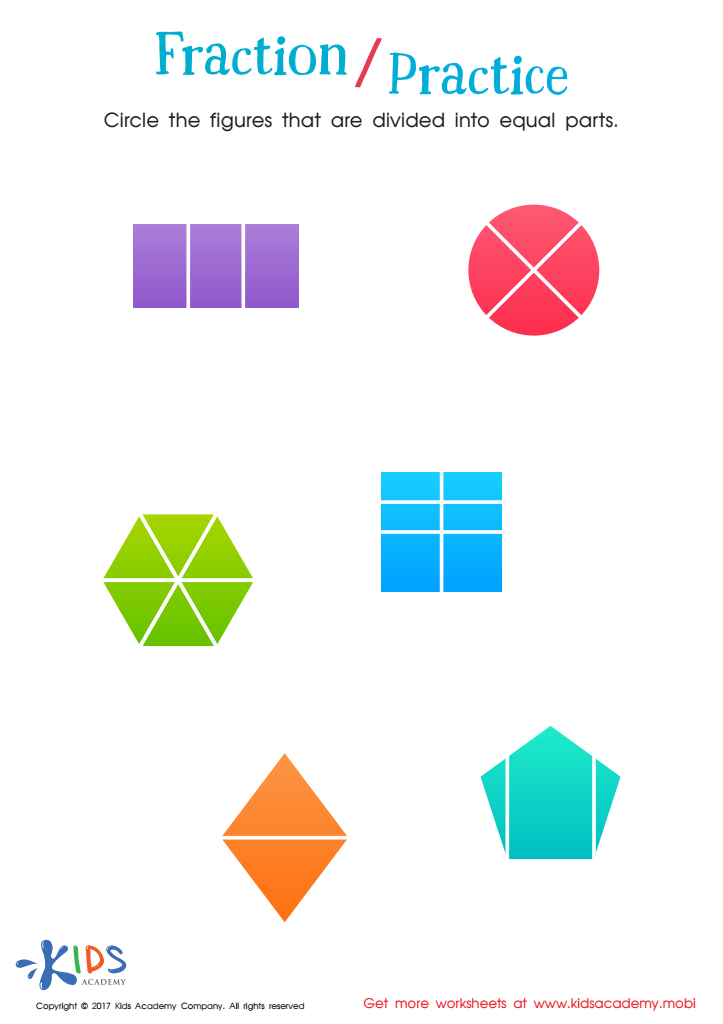

Fractions: Shapes Worksheet
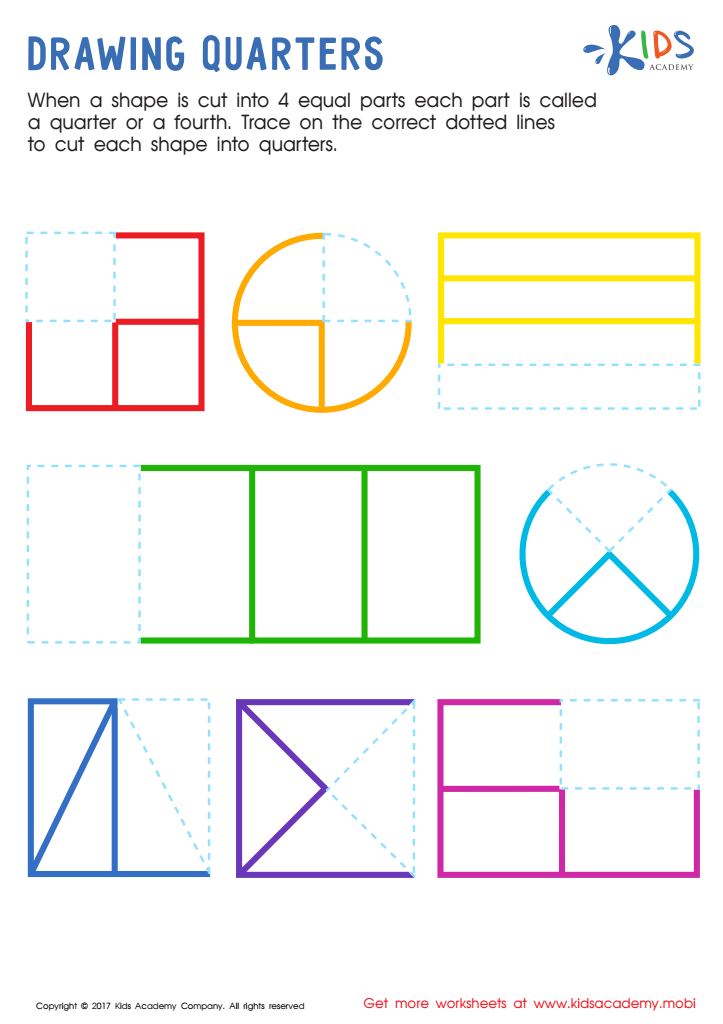

Drawing Quarters Worksheet
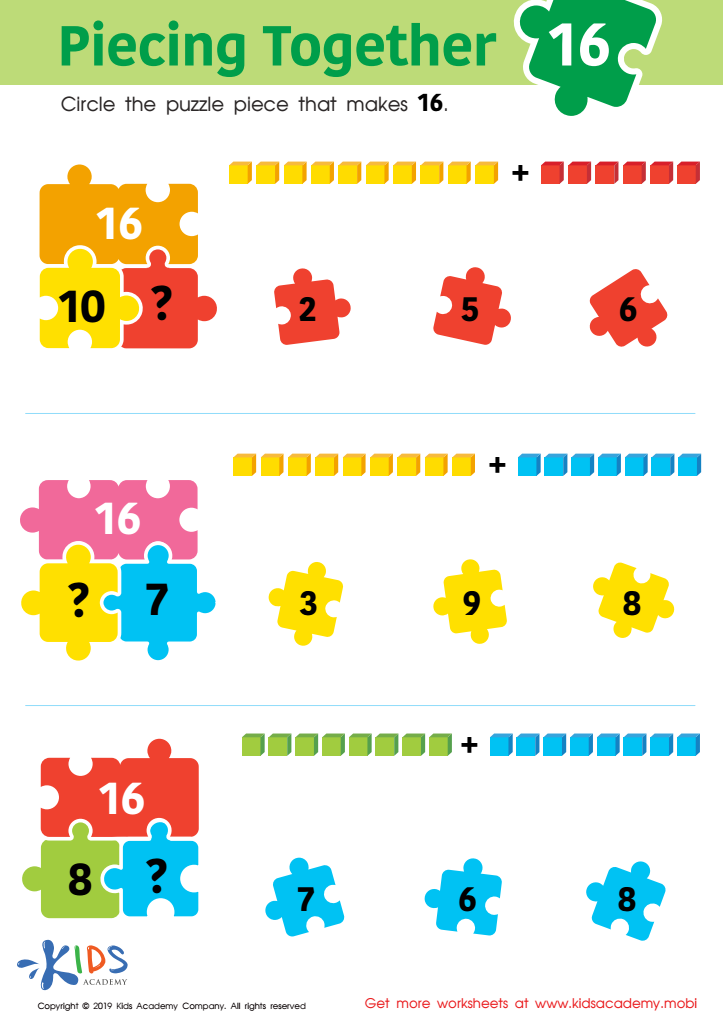

Piecing Together 16 Worksheet
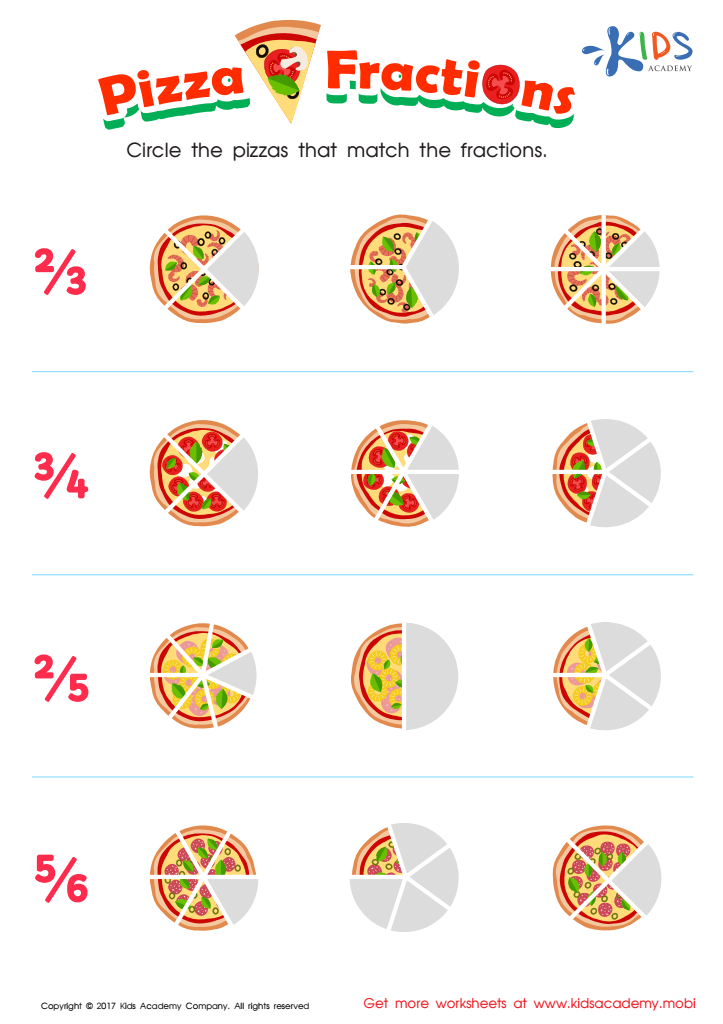

Fractions: Pizza Printable
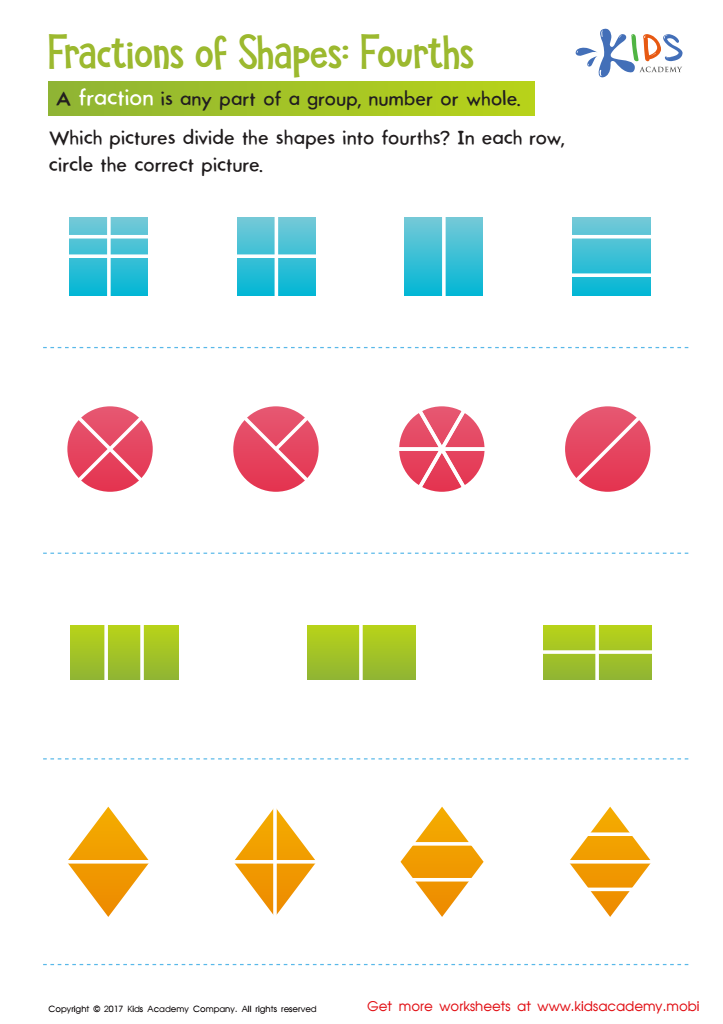

Fractions of Shapes Worksheet
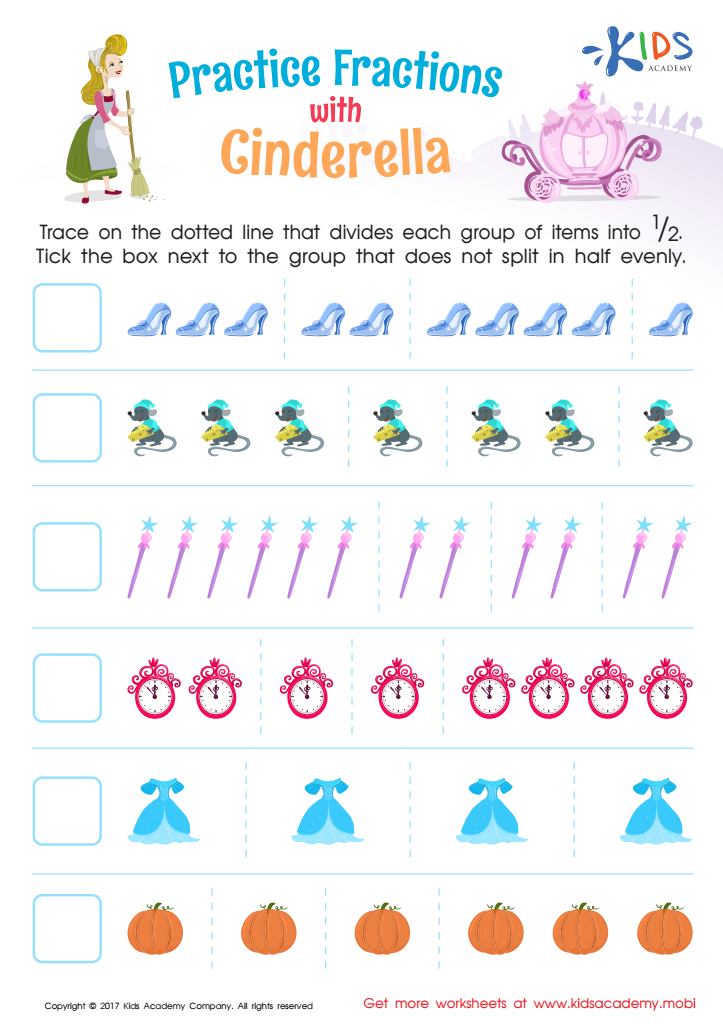

Fractions: Cinderella Printable
Understanding fractions at an early age, such as when a child is six years old, plays a critical role in the development of foundational math skills vital for future academic success. At this pivotal stage, children are not just learning to handle numbers but are also developing critical thinking and problem-solving abilities. Introducing fractions involves breaking a whole into parts, a concept easily related to everyday situations like sharing a pizza or dividing a set of candies.
Early exposure to fractions encourages mathematical thinking that extends beyond whole numbers. It introduces the concept of parts of a whole, which is crucial for understanding more complex math problems later on, such as percentages, ratios, and even algebra. This foundational understanding helps prevent math anxiety in later grades by making advanced topics feel like a natural extension of what they already know.
Moreover, working with fractions improves cognitive skills such as reasoning, comparing, and visualizing quantities, all of which are essential life skills. For parents or teachers, incorporating fractions through extra challenge math can create engaging and playful learning experiences. Activities like measuring ingredients for a recipe or dividing a playground into sections make math tangible and relatable. Thus, emphasizing fractions at this age nurtures a solid mathematical foundation, instills confidence, and breaks down barriers to future learning.
 Assign to My Students
Assign to My Students
















